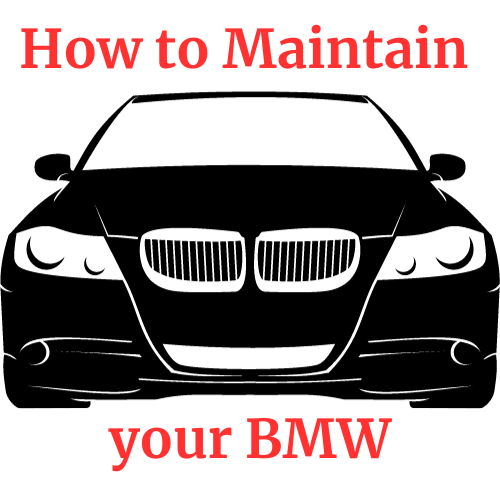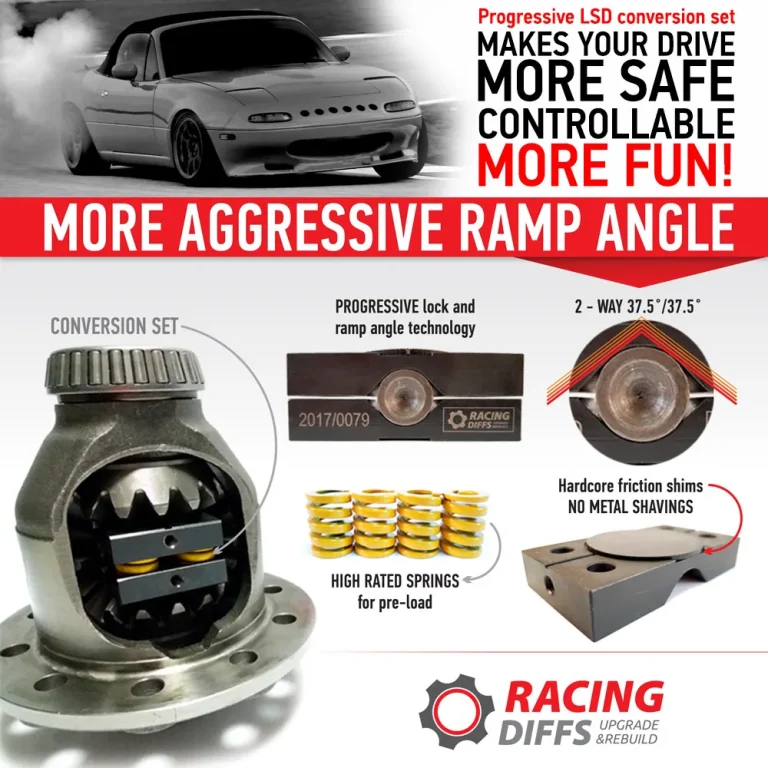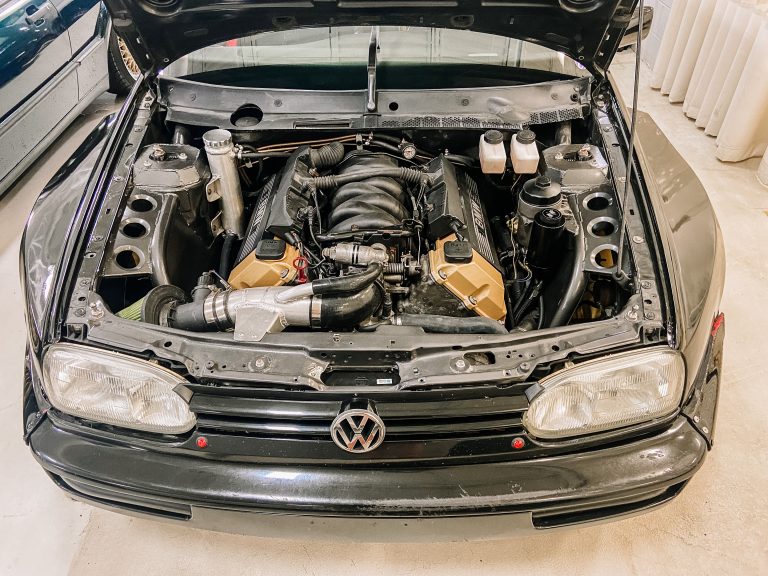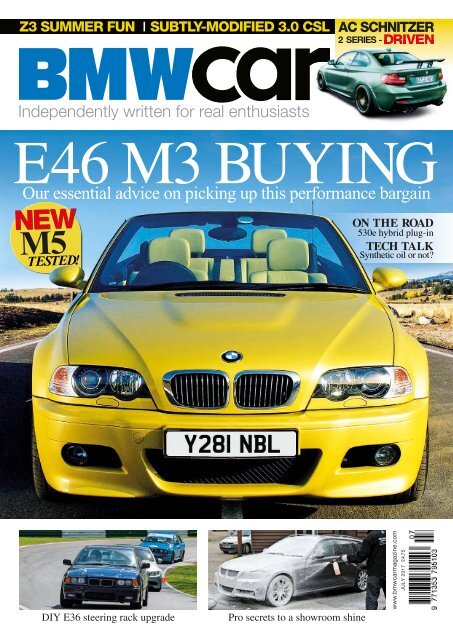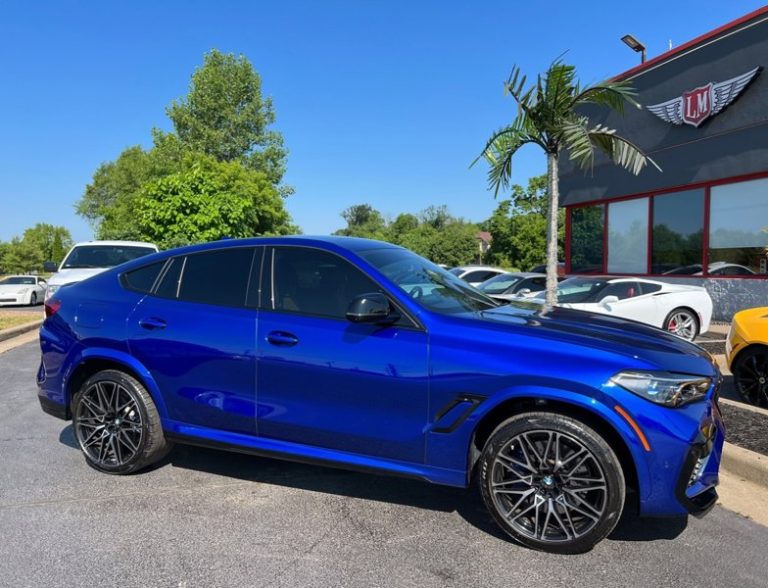When it comes to building or working on engines, knowledge of torque specifications is essential. As a BMW owner or mechanic, understanding the proper torque specifications for various engine components is crucial to ensure the best performance, reliability, and safety.
The Importance of Torque Specifications
Torque refers to the amount of force required to rotate an object about an axis, in the case of engines, the force that tightens bolts or fasteners. Torque specifications provide specific values for tightening bolts and fasteners in an engine, ensuring that they are neither too loose nor too tight. Proper torque ensures the components are securely fastened without causing damage to the threads or compromising the integrity of the engine.

Credit: www.amazon.com

Credit: mobile.guideautoweb.com
Torque Spec Guide for BMW Engines
Here is a comprehensive torque specification guide for various components of BMW engines:
Cylinder Head Bolts
The cylinder head bolts hold the cylinder head in place and create a seal between the head and the engine block. It is crucial to follow the manufacturer’s specifications for tightening the cylinder head bolts as improper torque can lead to head gasket failure or other engine issues. Below are the torque specifications for BMW cylinder head bolts:
| Engine Model | Torque Specification |
|---|---|
| BMW E36 M3 (S50B30) | Step 1: 30 Nm (22 ft-lbs) Step 2: 90 degrees (1/4 turn) Step 3: 90 degrees (1/4 turn) |
| BMW E46 M3 (S54B32) | 30 Nm (22 ft-lbs) |
| BMW E90 M3 (S65B40) | 30 Nm (22 ft-lbs) |
Flywheel Bolts
The flywheel bolts secure the flywheel to the crankshaft and are subjected to high RPM and torque. It is essential to use the correct torque specifications to avoid flywheel failure or damage. Here are the torque specifications for BMW flywheel bolts:
- BMW E36 M3 (S50B30): 90 Nm (66 ft-lbs)
- BMW E46 M3 (S54B32): 90 Nm (66 ft-lbs)
- BMW E90 M3 (S65B40): 90 Nm (66 ft-lbs)
Connecting Rod Bolts
The connecting rod bolts secure the connecting rod to the crankshaft and are subjected to significant loads during engine operation. Using the correct torque specifications is crucial to prevent rod failure and catastrophic engine damage. Here are the torque specifications for BMW connecting rod bolts:
- BMW E36 M3 (S50B30): 20 Nm (15 ft-lbs) + 90 degrees
- BMW E46 M3 (S54B32): 20 Nm (15 ft-lbs) + 90 degrees
- BMW E90 M3 (S65B40): 20 Nm (15 ft-lbs) + 90 degrees
Main Bearing Bolts
The main bearing bolts secure the crankshaft main bearings and play a vital role in the engine’s stability and durability. Using the correct torque specifications for main bearing bolts is crucial to prevent bearing failure and crankshaft damage. Here are the torque specifications for BMW main bearing bolts:
- BMW E36 M3 (S50B30): 20 Nm (15 ft-lbs) + 90 degrees
- BMW E46 M3 (S54B32): 20 Nm (15 ft-lbs) + 90 degrees
- BMW E90 M3 (S65B40): 20 Nm (15 ft-lbs) + 90 degrees
Frequently Asked Questions Of Bmw Engine Torque Spec Guide: Boost Performance With Proven Power Words
What Is The Torque Specification For A Bmw M3 Engine?
The torque specification for a BMW M3 engine typically ranges between 300-350 lb-ft, depending on the specific model and year.
How Important Is Torque In A Bmw Engine?
Torque is crucial in a BMW engine as it determines the vehicle’s acceleration and towing capacity, providing robust power for an exhilarating driving experience.
What Happens If You Exceed The Engine’s Torque Specification?
Exceeding the engine’s torque specification can lead to various issues, such as engine damage, increased wear and tear, and decreased fuel efficiency.
Why Is It Essential To Follow Torque Specifications When Working On A Bmw Engine?
Following torque specifications ensures that the engine components are properly tightened, preventing leaks, guaranteeing optimal performance, and avoiding potential engine failure.
Conclusion
Proper torque specifications are vital when working on your BMW’s engine. Following the recommended torque values ensures the components are securely fastened without causing damage or compromising the performance of your engine. Always refer to your vehicle’s service manual or consult a qualified mechanic for accurate and up-to-date torque specifications for your BMW engine.
Remember, when it comes to your BMW’s engine, precision and attention to detail are paramount.
